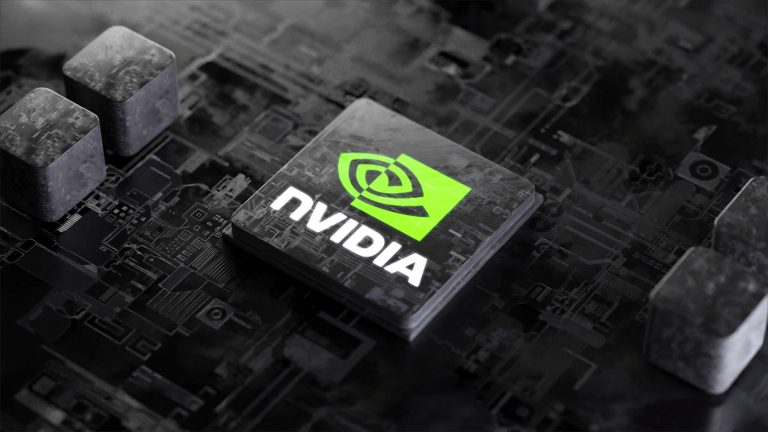
The United Arab Emirates has struck a landmark agreement with the United States to build what will be the largest artificial intelligence campus outside US borders — a deal sealed during Donald Trump’s recent visit to the Gulf and hailed as a turning point in US-UAE tech cooperation.
However, it has also sparked concerns in Washington over the possibility of Chinese access to advanced US-origin AI technology.
Central to the agreement is a massive 10-square-mile AI campus in Abu Dhabi, with a 5-gigawatt power capacity dedicated to data centers that will run cutting-edge artificial intelligence workloads. The campus will be constructed by G42, a state-backed Emirati firm, but according to the US Commerce Department, American companies will operate the data centers and deliver US-managed cloud services across the region.
Register for Tekedia Mini-MBA edition 19 (Feb 9 – May 2, 2026).
Register for Tekedia AI in Business Masterclass.
Join Tekedia Capital Syndicate and co-invest in great global startups.
Register for Tekedia AI Lab.
“American companies will operate the datacenters and offer American-managed cloud services throughout the region,” said US Commerce Secretary Howard Lutnick.
The deal also includes US technology companies Qualcomm and Amazon Web Services (AWS), which will partner with UAE entities to develop AI infrastructure, bolster cybersecurity, and accelerate regional cloud adoption. AWS will focus on building secure cloud systems, while Qualcomm is expected to set up an AI-focused engineering hub.
A Major Break From Biden-Era Tech Restrictions
This deal marks a stark departure from the cautious stance adopted under President Joe Biden, whose administration restricted exports of AI chips to countries like the UAE out of concern that such technologies could find their way into Chinese hands.
Under Trump’s leadership, those restrictions are being peeled back. His newly appointed AI czar, David Sacks, speaking in Riyadh earlier this week, criticized the Biden-era controls, stating they were “never intended to capture friends, allies, strategic partners.” He added that a smarter approach involves giving US allies access to key technologies while maintaining oversight.
At the core of the deal is access to Nvidia’s most advanced chips — a prized asset in the AI race. Although the specific models were not disclosed publicly, Reuters reported that the UAE will be permitted to import up to 500,000 of Nvidia’s high-end AI chips annually starting in 2025.
Nvidia CEO Jensen Huang was seen in televised footage with Trump and UAE President Sheikh Mohamed bin Zayed Al Nahyan during meetings at the Qasr Al Watan palace in Abu Dhabi. The optics underscore the level of coordination between tech industry giants and the new Trump administration in shaping global AI infrastructure.
A Win for the UAE, But at What Cost?
For the UAE, the deal is a major breakthrough. The Gulf country has long harbored ambitions to become a global AI powerhouse. It has poured billions into AI investments through state-linked vehicles like G42 and MGX, while courting partnerships with top Western firms.
Until now, its ambitions were curtailed by US export controls, which limited access to the most powerful chips and forced G42 to unwind partnerships with Chinese tech firms. Under pressure from Washington, G42 reportedly began dismantling Huawei’s infrastructure in its systems and sold off some Chinese investments. These actions paved the way for Thursday’s announcement.
“This shift enables [the UAE] to deepen its technology partnership with the US while still preserving trade ties with China,” said Mohammed Soliman, senior fellow at the Middle East Institute.
“It doesn’t mean abandoning China but it does mean recalibrating tech strategy to align with US standards and protocols where it matters most: compute, cloud, and chip supply chains.”
The deal also commits the UAE to building, financing, or investing in AI data centers in the United States that are “at least as large and powerful” as the ones being developed in Abu Dhabi. The White House said this ensures a balance of capabilities while creating tech jobs domestically.
Additionally, the agreement includes “historic commitments” by the UAE to align its national security regulations with the US, according to fact sheets released by the Trump administration. These include “strong protections to prevent the diversion of US-origin technology” — a thinly veiled reference to fears of re-export to China.
Lingering Worries Over China
However, the deal has unsettled some in Washington and among US national security circles, who argue that tech leakage remains a real threat, especially given the UAE’s long-standing ties with China. Huawei and Alibaba Cloud, two of China’s tech giants, still maintain a visible presence in the UAE, raising concerns about potential overlap or backdoor access.
A Reuters investigation earlier this year revealed that AI chips had been smuggled from the UAE, Singapore, and Malaysia into China, bypassing export restrictions meant to cut off Beijing’s access to advanced semiconductors. That report is now being reexamined in light of the new agreement.
National security analysts warn that even with US firms managing operations, risks persist.
Even so, top US tech CEOs — from OpenAI’s Sam Altman to Nvidia’s Huang — have voiced support for the deal. With China developing its own advanced AI models and custom chips, the opportunity to extend US platforms globally through friendly partners is seen as both a strategic and economic win.
The agreement caps months of high-level diplomatic and corporate engagement. AI was a major focus when Sheikh Mohamed bin Zayed visited Washington in December, just days before Biden left office. Since then, Emirati investment firms have increased their exposure to US AI startups, including OpenAI and Elon Musk’s xAI.
Microsoft, another major player in the space, announced a $1.5 billion investment in G42 last year, suggesting a coordinated push to embed American AI technology in the Middle East while curbing Chinese influence.
Trump’s visit to the region and the string of agreements that followed signal a broader strategic reset. It is seen as a recalibration aimed at ensuring the US retains influence in global AI infrastructure while extending its technological reach beyond its borders.



